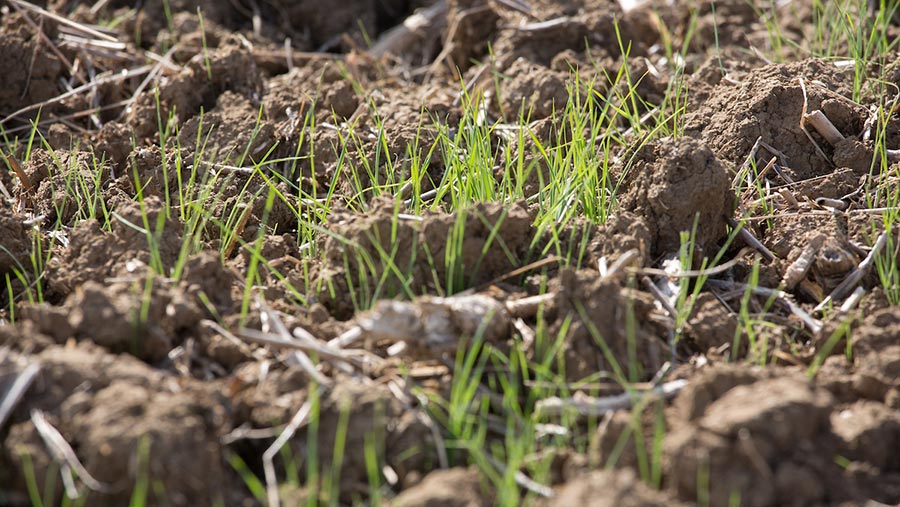Blackgrass battle hampered by wet and seed dormancy
 © Tim Scrivener
© Tim Scrivener The fight to control blackgrass could be tougher this autumn as wet weather is tempting winter wheat growers to drill early while seed of the grassweed shows high dormancy levels.
The recent rain has seen the first flush of blackgrass in many fields and continued wet weather is pressurising some winter cereal growers to consider drilling sooner than planned.
Blackgrass typically has two autumn flushes – the first at the end of September and another from mid-October.
See also: 5 tips to get the most from residual blackgrass herbicides
Ideally, the best time to drill is after the second flush, but wet weather may cause a change in tactics this autumn.
In addition, crop consultants Adas are predicting a high dormancy year for blackgrass seed, meaning that the grassweed will emerge over a longer period and push the second flush towards the end of October.
Balancing act
Darren Adkins, commercial technical manager at agrochemical group Bayer, says there is a balancing act between drilling later to control blackgrass and drilling earlier to ensure there is a good area drilled of wheat.
He reports 100mm of rain in his area of Lincolnshire at the end of September and further rain in October, and on heavy-land farms, he expects drilling will begin with the next break in the weather.
“The herbicide programme is going to be absolutely critical this season as the weather and dormancy are working against us,” said Mr Adkins.
He says applying a pre-emergence herbicide, such as the group’s Liberator (flufenacet + diflufenican), within 48 hours of drilling consistently, achieves the best control of blackgrass.
Further south in Oxfordshire, Mr Adkins’ colleague Ben Giles reports a similar situation, but as there has been less rain, he is more confident that growers will still delay drilling.
Mr Giles says blackgrass flushes finally began in his area at the end of September, after 50mm of rain fell in seven days.
“I expect most growers will delay until after mid-October because they have first-hand experience of the difference late drilling makes,” he added.

